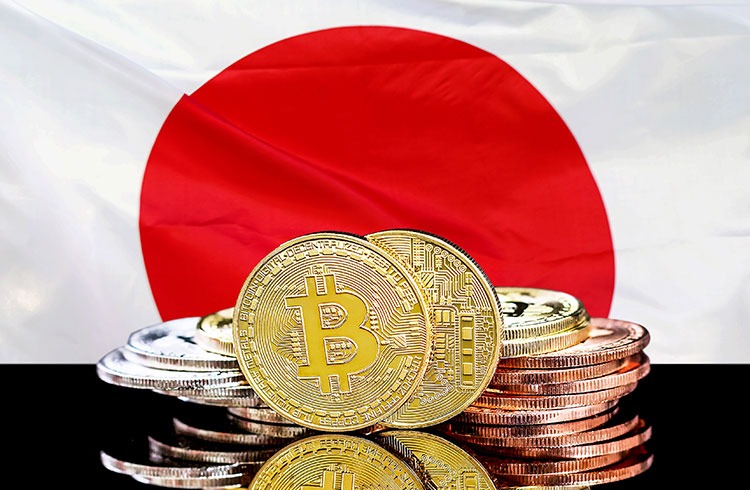Table of Contents
Even if the outcome of the Ukraine crisis is currently unclear, various scenarios threaten to influence the financial and crypto markets. If action were to follow the verbal disputes to date, it would be an economic catastrophe, especially for Russia.
As a consequence, the national currency, the ruble, would be massively devalued. Correspondingly, there would be an increased flight of capital from Russian assets and monetary values. The Russian government would have to take appropriate measures to stop the wealth transfer and devaluation. A BTC ban or a ban on various crypto investment forms would be an obvious part of the capital controls.
BTC ban in Russia
Although it was only recently announced that the Russian state is refraining from the much-discussed BTC ban, that does not necessarily mean that it will remain so in an emergency. Restrictions and bans often only follow when the state finds itself in an emergency.
After all, an escalation would hit Russia’s main source of income, natural gas and oil, badly. A significant budget deficit would be the result, with refinancing conditions on the free capital market becoming ever worse at the same time.
In order to still be able to finance government spending and social peace in the country, the Russian central bank would have to print massive amounts of money. Expected inflation would also reinforce the effect of capital flight. Financial infrastructures that are difficult to control by the state, i.e. blockchain infrastructures, would have to be restricted accordingly quickly.
At the same time, the development of a digital central bank currency based on the Chinese model would be accelerated in order to be able to access bank-independent infrastructures more quickly. This could also increase the pressure on BTC and Co. The central bank announced on Tuesday, February 15, that the first test transactions should take place in the first half of the year.
This speaks against a BTC ban in Russia
On the other hand, there are also reasons for Russia not to ban BTC. On the one hand, Russia could use its cheap energy and good climatic conditions to at least partially compensate for loss of earnings through BTC mining. Furthermore, cryptocurrencies could help Russia’s import and export to bypass sanctions.
For example, Iran – whose political exposure shows parallels to Russia – only recently allowed cryptocurrencies for import and export companies. So if, as was the case with Iran in 2018, there should be an exclusion from the Western-dominated payment system such as SWIFT, then private cryptocurrencies such as BTC could at least mitigate the effects a little here as well.
The Russian state is also likely to increase its cyber attacks against the West, as has the US government warns. These cyberattacks and hacks can also include ransom demands, again denominated in BTC as usual. If, for example, German companies are infected with a computer virus in the next few weeks, then the chances are not bad that Russian hackers are at work here and are formulating BTC demands.
Ultimately, however, the arguments listed should not be strong enough to invalidate a BTC ban if the ruble falls. The BTC mining income would neither be high enough to significantly relieve the budget, nor could the payment difficulties in import and export be sufficiently compensated for via cryptocurrencies, since sanctions would forestall this alternative. Especially since the state can play a double game. Although an extreme example, Russia could ban cryptocurrencies just like North Korea, but at the same time enrich itself as a state.
Consequences for the BTC course
In the event of an escalation in Ukraine, a short-term slump in the markets is to be expected. The stock markets should be hit less hard than the crypto market. For one, cryptocurrencies react with greater volatility. On the other hand, a BTC ban in Russia would become more likely. BTC’s image could also suffer if media reports increasingly report cyber attacks associated with cryptocurrencies.
As negative as the effects on the BTC price would be in the short term, they should not fundamentally have a long-lasting effect. The BTC ban in China has already shown that no state, not even China, is capable of sustainably attacking the BTC network. Measured against Russia’s economic importance, a possible BTC ban would be very bearable.
Greater danger lies in the USA
Instead, the greater danger for the BTC course lies in the USA, more precisely with the American central bank. If the current inflation rate of 7.5 percent in the USA does not recede in a timely manner, there is a risk of further interest rate hikes in a shorter period of time. The combination of interest rate hikes in the USA and, in the future, also in Europe, an escalation of the Ukraine conflict and a potential crypto ban in Russia would have what it takes to send the financial markets and BTC down for the time being.
In the short term, as has already been observed in the last few days, safe government bonds, gold and the US dollar would clearly be on the winners’ side. BTC, on the other hand, is not perceived by the market as a safe haven or protection against inflation, at least in the short term. Accordingly, crisis scenarios are the first to be noticed there.
BTC investors: How to position yourself correctly now
There are currently no official indications of a specific BTC ban in Russia, even though the Russian central bank had recently requested this. Russia has historically taken a zigzag course in crypto regulation.
This is precisely why it is important for crypto investors to deal with this scenario in advance. However, investors should have a portfolio strategy just in case. In particular, traders who are using larger leverage are currently taking an enormous risk. Anyone who does not consider themselves a hardcore speculator should currently pursue a more passive or defensive investment style. This is as true for the stock sector as it is for the crypto market.
- Bitcoin Drops Below $94,000: Are the Bears Throwing a Blockchain BBQ? 🐻🔥📉 - December 30, 2024
- CryptoQuant Analyst: Bitcoin Nowhere Near Its Peak – Buckle Up, Hodlers! - December 21, 2024
- Chainalysis: $2.2 Billion Lost to Crypto Hacks in 2024 - December 21, 2024























